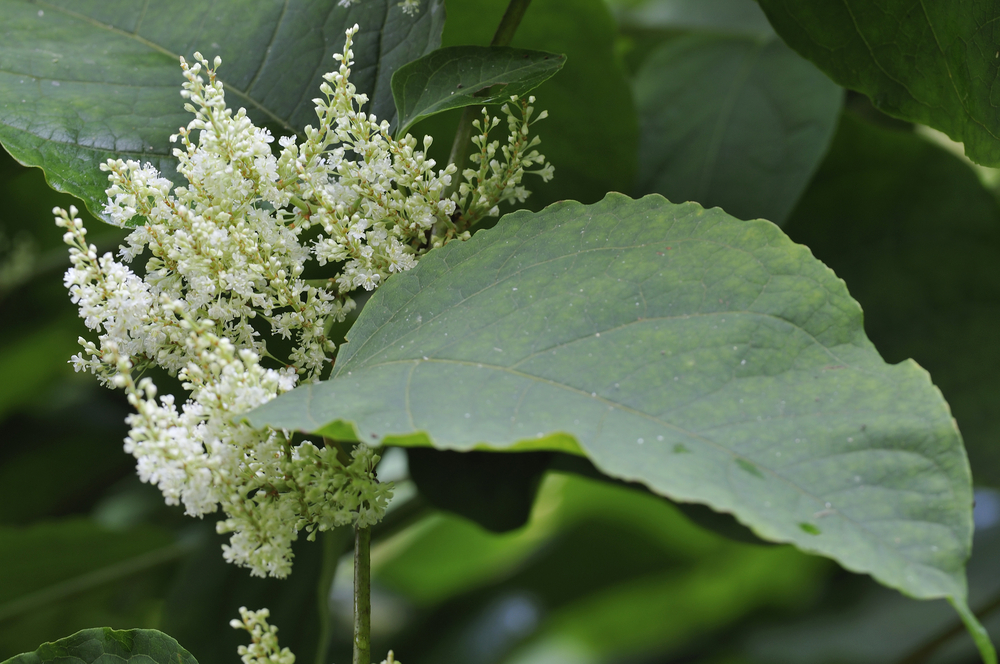News
Seller slapped with £200,000 fine for misrepresentation of Japanese knotweed ‒ report

A seller of £700,000 property in Raynes Park faces a £200,000 legal bill after the buyer sued over misrepresentation of Japanese knotweed.
Reported in The Times and The Telegraph, Jeremy Henderson, 41-year-old accountant, sold the three-bed in Raynes Park, Sout West London in 2018 to 30-year-old furniture designer Jonathan Downing.
At the time of sale, Henderson had said that there was no Japanese knotweed at the property, however knotweed canes were discovered behind a large bush next to the shed in the garden.
Downing, who had planned to build a workshop in the back garden, sued Henderson arguing that he misrepresented the state of the property before purchase.
Henderson said during court proceedings, he reasonably believed that there was no knotweed, adding that the knotweed could not be seen behind the large bush. He claimed the growth of the knotweed had been stunted by the bush which was then cut back by Downing.
Judge Jan Luba KC dismissed the defence and awarded costs and damages of over £200,000. This includes £32,000 in damages and legal costs of up to £95,000.
During court proceedings, experts said that the weed could have been in garden since 2012 and had shown signs of herbicide. Henderson added that he had occupied the house since 2015.
‘Seller’s duty to determine if property is affected by knotweed’
Nic Seal, founder and managing director of Environet, said that the verdict shows how vital it is that sellers check their property for knotweed before selling if they want to avoid being sued further down the line.
“The Law Society’s TA6 Property Information Form, completed by all sellers, asks a direct question about whether a property is affected by knotweed and the accompanying guidance clearly states that in order to answer ‘No’, the seller must be certain the property is not affected, including rhizome (roots and shoots) beneath the ground and within three metres of the boundary,” he explained.
Seal said that a “cursory glance” of the garden by an “untrained eye is not sufficient”.
He noted that knotweed dies back during the winter months and can lie dormant beneath the ground for up to 20 years with no sign of growth. It can also take on a new appearance if chemical have been used to try to kill it.
“It’s the seller’s duty to determine if their property is affected by knotweed. It might be tempting to cross your fingers and hope for the best, but if it later arises and the buyer sues, you’ll be liable for diminution of the value of the property and legal costs, which can amount to hundreds of thousands of pounds.
“The only way to confidently state that a property is unaffected is to commission a professional knotweed survey, backed by a warranty,” Seal said.
Joanne Ellis, partner at Stephensons Solicitors, agreed said that the case was a “classic example of the need to be entirely truthful on the forms when selling the property”.
“If there is any doubt at all then the correct answer is ‘not known’. This gives the buyer the opportunity to make their own investigations,” he said.
Ellis continued: “My experience is that if Japanese knotweed is disclosed, as long as there is an insurance-backed guarantee in place or an agreement in respect of costs of works, a property is still entirely capable of being sold. Any potential devaluation will be fact sensitive and depended on expert evidence.”
Knotweed a ‘significant concern for buyers and sellers’
Samuel Mather-Holgate, independent financial adviser at Mather and Murray Financial, said that the case showed how important it was to disclose all the facts when selling a property.
“It shouldn’t be looked at through the prism of knotweed, as the outcome would have been the same if the property had subsidence that the seller knew about and didn’t disclose, though I’m sure the bill would have been less,” he added.
He said that knotweed could be dealt with, and he would “advise this route rather than selling your house while the problem persists as the value will collapse and no one would be able to mortgage it”.
Mark Hosker, mortgage adviser at Cyborg Finance, said that Japanese knotweed could be a “significant concern for buyers and sellers of properties”.
He continued: “As a mortgage broker, we have experience assisting clients with properties that have this invasive species. Lenders have strict guidelines in place regarding knotweed, and it is crucial for sellers to follow the approved steps for handling it.
“DIY solutions can result in severe penalties, and an insurance-backed treatment plan must be in place before the sale can be completed. While the recommended remedial works don’t need to be completed before the mortgage funds release, it is advisable to do so.”
He said buyers should ensure they have a proper valuation survey to identity the problem and ensure the seller has an insurance-backed treatment plan in place before they buy the property.